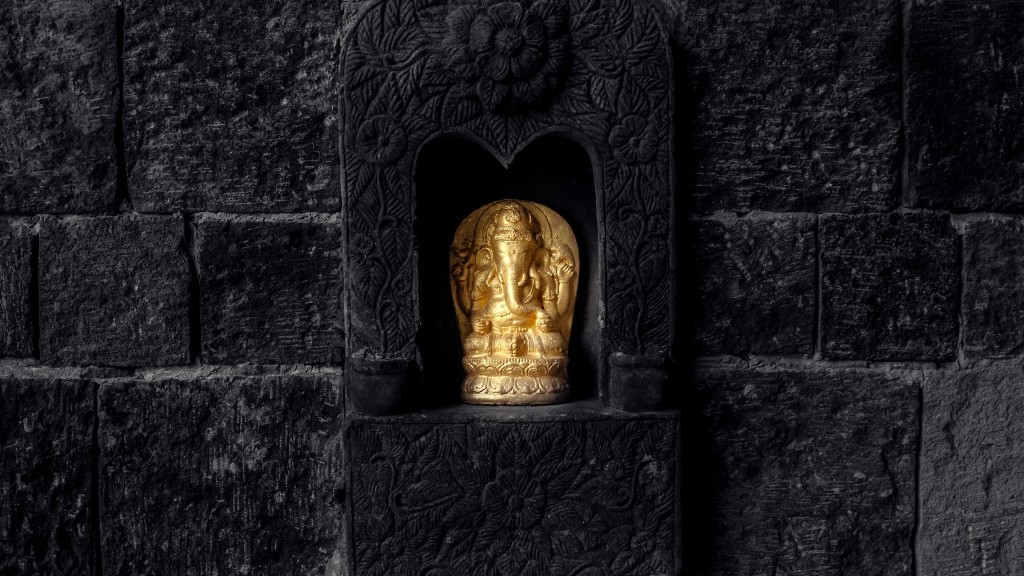Buddhism is a religion and philosophy founded in India by Siddhartha Gautama in the 6th century BCE. The core teaching of Buddhism is the Four Noble Truths, which are that suffering exists, that suffering has a cause, that suffering can be ended, and that there is a path to the end of suffering.
The core teaching of Buddhism is the Four Noble Truths. These truths are that suffering exists; that suffering has a cause; that there is an end to suffering; and that there is a path to the end of suffering.
What is the main teachings of Buddhism?
The Three Universal Truths are:
1. All things are impermanent.
2. All things are unsatisfactory.
3. All things are empty and lack self-nature.
The Four Noble Truths are:
1. The truth of suffering.
2. The truth of the origin of suffering.
3. The truth of the cessation of suffering.
4. The truth of the path leading to the cessation of suffering.
The Noble Eightfold Path is:
1. Right understanding
2. Right thought
3. Right speech
4. Right action
5. Right livelihood
6. Right effort
7. Right mindfulness
8. Right concentration
The main Buddhist values are love, wisdom, goodness, calmness and self-control. Buddhists believe that people should try to end suffering; all things should be seen as having no self or essential nature.
What are the 3 core beliefs of Buddhism
Buddhism is a religion that is based on the teachings of Siddhartha Gautama. The main principles of this belief system are karma, rebirth, and impermanence.
Karma is the belief that our actions have consequences, both good and bad. We are all responsible for our own karma, and it is up to us to make sure that we create more good than bad in our lives.
Rebirth is the belief that after we die, our souls are reborn into another body. This cycle of birth and death is called samsara, and it is only through reaching nirvana that we can break free from it.
Impermanence is the belief that nothing in this world is permanent. This includes our own bodies and our own thoughts and feelings. Everything is constantly changing, and we should learn to accept this.
The Five Precepts are a set of guidelines for living a moral and ethical life. The first precept is to refrain from taking life, which means not killing any living being. The second precept is to refrain from taking what is not given, which means not stealing from anyone. The third precept is to refrain from the misuse of the senses, which means not having too much sensual pleasure. The fourth precept is to refrain from wrong speech, which means not speaking lies or hurtful words. The fifth precept is to refrain from intoxicants that cloud the mind, which means not using drugs or alcohol.
What is the main philosophy of Buddha?
The four noble truths as preached by Buddha are that the life is full of suffering (Duhkha), that there is a cause of this suffering (Duhkha-samudaya), it is possible to stop suffering (Duhkha-nirodha), and there is a way to extinguish suffering (Duhkha-nirodha-marga). The way to extinguish suffering is through the eightfold path, which includes right understanding, right thought, right speech, right action, right livelihood, right effort, right mindfulness, and right concentration.
The Buddha’s quote is a great reminder that we should always be mindful of how our actions might affect others. It can be easy to get caught up in our own thoughts and feelings and forget that there are other people in the world who are just as important as we are. The Golden Rule is a great way to live life because it ensures that we are always taking other people’s needs and feelings into consideration.
What are 4 basics of Buddhism?
The Four Noble Truths are at the heart of the Buddha’s teachings, but they don’t explain everything. They’re the truth of suffering, the truth of the cause of suffering, the truth of the end of suffering, and the truth of the path that leads to the end of suffering.
The Pāramitās are widely promoted in Buddhism as a way to live a virtuous life. They include such things as generosity, proper conduct, renunciation, wisdom, energy, patience, honesty, determination, and good-will. By following these path, one can grow in their spiritual journey and become closer to enlightenment.
What religion believes in karma
Karma is often viewed as a moral law of cause and effect, whereby good deeds lead to good outcomes and bad deeds lead to bad outcomes. In some Indian religions, karma is also seen as a process of becoming transformed or enlightened.
In Hinduism, karma is often believed to be a force that determines one’s destiny. One’s karma can be either good or bad, and it is often believed that good karma leads to good outcomes and bad karma leads to bad outcomes.
In Buddhism, karma is often seen as a moral law of cause and effect, whereby good deeds lead to good outcomes and bad deeds lead to bad outcomes. However, Buddhism also teaches that karma is not an unstoppable force and that it can be overcome through effort and understanding.
In Jainism, karma is often seen as a process of becoming transformed or enlightened. One’s karma can be either good or bad, but the goal is to eventually transcend all karma and attain a state of liberation.
In Sikhism, karma is often seen as a moral law of cause and effect, whereby good deeds lead to good outcomes and bad deeds lead to bad outcomes. However, Sikhism also teaches that karma is not an unstoppable force and that it can be overcome through effort
The Dharmachakra is one of the most important symbols of Buddhism. It is a wheel that is turned when the Buddha is teaching. The wheel represents the Dharma, which is the Buddha’s teaching.
What does the color gold mean in Buddhism?
Pasting gold leaf onto statues at pagodas is one way to honor the Buddha’s teachings. Gilding such figures is, according practitioners of Buddhism, “an act of loving kindness” and a path to “transfer good merits”. Gold in Buddhism signifies the sun: a flame of purity, knowledge, enlightenment.
The six paramitas are virtues that are to be cultivated by every bodhisattva on the path to buddhahood. They are: generosity, morality, patience, vigor, concentration, and wisdom.
What are the 10 rules of Buddhism
The Ten Grave Precepts are a set of ethical guidelines for life. They include Respect life – Do not kill, Be giving – Do not steal, Honor the body – Do not misuse sexuality, Manifest truth – Do not lie, Proceed clearly – Do not cloud the mind, See the perfection – Do not speak of others’ errors and faults, Realize self and others as one – Do not elevate the self and blame others.
The captivity of the Babylonians was a time when the people were forced to confront the reality of other gods. For the first time, they were forced to consider that these foreign gods might actually be real and have power over them. This was a time of great turmoil and upheaval, but it was also a time of great growth and new understanding. From this time, Judaism was born. Today, Judaism has 14-15 million followers worldwide.
Which religion teaches that life is full of suffering?
Buddhism is one of the world’s largest religions, with over 500 million followers. It began in India over 2,500 years ago and teaches that the human life is one of suffering. Buddhists believe that meditation, spiritual and physical labor, and good behavior are the ways to achieve enlightenment, or nirvana.
Reincarnation is the philosophical or religious concept that an aspect of a living being starts a new life in a different physical body or form after each biological death. It is also called rebirth or transmigration.
Can you have tattoos in Buddhism
While Buddhism isn’t particularly restrictive when it comes to tattoos, Buddhists believe that the body is impermanent and so are tattoos. Because they are viewed as temporary, getting tattoos doesn’t violate any Buddhist doctrines or beliefs.
Buddhists do not believe in a supreme god or deity. Instead, they focus on achieving enlightenment, which is a state of inner peace and wisdom. Once a follower reaches this spiritual echelon, they are said to have experienced nirvana. Buddha, the founder of the religion, is considered an extraordinary being, but not a god.
Warp Up
The core teaching of Buddhism is the Four Noble Truths. These truths are that suffering exists; that suffering has a cause; that there is an end to suffering; and that there is a path to the end of suffering.
The core teaching of Buddhism is the Four Noble Truths, which are the truths of suffering, the cause of suffering, the cessation of suffering, and the path to the cessation of suffering. The Four Noble Truths are the foundation of Buddhist thought and practice, and they provide the framework for understanding the Buddha’s teachings.





